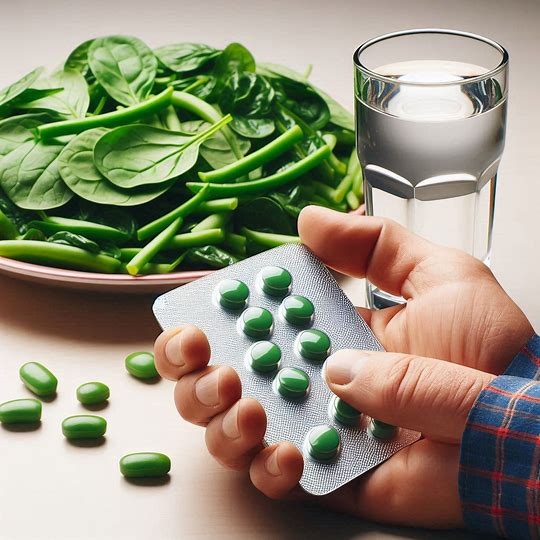Iron is a crucial mineral essential for various bodily functions, including the production of hemoglobin, which helps red blood cells carry oxygen throughout the body. Iron deficiency can lead to anemia, causing fatigue, weakness, and other health issues. Iron tablets are commonly prescribed to address this deficiency. However, taking iron supplements correctly is vital to ensure maximum absorption and avoid potential side effects or interactions with other medications. This comprehensive guide will help you understand the correct dosage of iron tablets, how to take them, and what to be aware of regarding drug interactions.
Understanding Iron Dosage
Iron supplements come in different forms and strengths, and the appropriate dosage can vary depending on individual needs and medical conditions. The dosage is typically measured in milligrams (mg) of elemental iron, which is the actual iron content in the supplement.
Common Forms of Iron Supplements
Ferrous Sulfate:- Contains approximately 20% elemental iron. A 325 mg tablet provides about 65 mg of elemental iron.
Ferrous Gluconate:- Contains about 12% elemental iron. A 325 mg tablet provides around 38 mg of elemental iron.
Ferrous Fumarate:- Contains about 33% elemental iron. A 325 mg tablet provides around 107 mg of elemental iron.
Recommended Dosages
The recommended dosage of iron supplements varies based on age, sex, and the specific condition being treated. Here are the general guidelines:
- Adults:- For iron deficiency anemia, the typical dosage ranges from 100 to 200 mg of elemental iron per day, divided into two or three doses.
- Pregnant Women:- The recommended dose is usually 27 mg of elemental iron daily, but it may be higher if the woman is anemic.
- Children:- Dosages vary significantly based on age and weight. It's crucial to follow a healthcare provider's recommendations.
How to Take Iron Tablets Correctly
Proper administration of iron tablets is essential for optimal absorption and to minimize side effects. Here are some key points to consider:
Timing and Frequency
- Empty Stomach:- Iron is best absorbed on an empty stomach, so take the tablets either one hour before meals or two hours after meals.
- With Vitamin C:- Vitamin C enhances iron absorption. Consider taking your iron tablet with a glass of orange juice or a vitamin C supplement.
- Avoid Dairy and Calcium:- Calcium can inhibit iron absorption, so avoid consuming dairy products, calcium supplements, or antacids within two hours of taking iron tablets.
- Consistent Schedule:- Try to take your iron supplement at the same time every day to establish a routine and ensure you don't miss a dose.
Potential Side Effects and How to Manage Them
Iron supplements can cause gastrointestinal side effects such as constipation, nausea, and stomach cramps. Here are some tips to manage these side effects:
- Start Slowly:- If you experience side effects, start with a lower dose and gradually increase it as your body adjusts.
- Hydration and Fiber:- Increase your water intake and eat high-fiber foods to help prevent constipation.
- Take with Food:- If taking iron on an empty stomach causes nausea, try taking it with a small amount of food, but avoid high-calcium foods.
- Split Doses:- If the prescribed dose is too harsh on your stomach, ask your doctor if you can split it into smaller, more frequent doses throughout the day.
Potential Interactions with Other Medications
Iron supplements can interact with various medications and affect their efficacy.
Here are some common interactions to be aware of:
Medications That Reduce Iron Absorption
- Antacids:- Medications like Tums and Rolaids can reduce iron absorption. Take iron tablets two hours before or four hours after antacids.
- Proton Pump Inhibitors (PPIs) and H2 Blockers:- Medications for acid reflux, such as omeprazole (Prilosec) or ranitidine (Zantac), can decrease iron absorption. Discuss with your doctor the best time to take these medications.
Medications Affected by Iron
- Antibiotics:- Iron can interfere with the absorption of certain antibiotics like tetracycline and ciprofloxacin. Take these antibiotics at least two hours before or six hours after iron supplements.
- Thyroid Medications:- Iron can reduce the effectiveness of levothyroxine (Synthroid). Take thyroid medications at least four hours before or after iron supplements.
- Bisphosphonates:- Used to treat osteoporosis, such as alendronate (Fosamax), can have reduced absorption if taken with iron. Take bisphosphonates at least 30 minutes before taking iron.
Special Considerations
Pregnancy and Breastfeeding
During pregnancy, iron needs to increase significantly to support the growing fetus and increase blood volume. Pregnant women should follow their healthcare provider’s recommendations for iron supplementation, which may be higher than the standard dosage.
Breastfeeding women also have increased iron needs, especially if they were anemic during pregnancy. Adequate iron intake is crucial for the health of both mother and baby.
Children and Adolescents
Iron deficiency is common in children and adolescents due to rapid growth and increased iron requirements. It’s essential to ensure they receive the correct dosage based on their age and weight and to consult with a pediatrician before starting any supplements.
Monitoring and Follow-Up
Regular monitoring of iron levels is essential when taking iron supplements, especially for individuals with chronic conditions or those on long-term therapy. Your healthcare provider may recommend periodic blood tests to check your hemoglobin and ferritin levels and adjust the dosage as needed.
Conclusion
Iron tablets are an effective way to address iron deficiency and improve overall health. However, it's crucial to take them correctly to maximize absorption and minimize side effects and interactions with other medications. By following the guidelines outlined in this article, you can ensure you are taking your iron supplements safely and effectively. Always consult with your healthcare provider before starting or adjusting any medication regimen, and keep them informed of all the medications and supplements you are taking to avoid potential interactions. Also, always prefer to choose the best iron tablet in the available Indian market.
With proper usage and monitoring, iron supplements can help you overcome iron deficiency and lead a healthier, more energetic life.




.png)

Comments